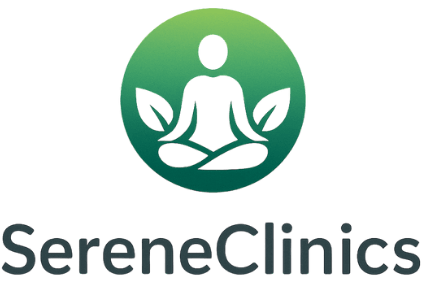How to Become a Naturopathic Doctor: Career Path and Education
Do you care deeply about overall health and want to help others by teaching them about their health? Becoming a Naturopathic Doctor might be your calling. With programs like those offered at the University of Western States and guidance from the American Association for Medical Colleges, aspiring practitioners can chart a rewarding career in naturopathic medicine. This article will take you through the important steps, from learning to getting certified, to help you start your career in this rewarding field.
Key Takeaways:
Contents
- 1 The Role of a Naturopathic Doctor
- 2 Educational Requirements
- 3 Licensing and Certification
- 4 Career Opportunities for Naturopathic Doctors
- 5 Skills and Qualities of Successful Naturopathic Doctors
- 6 Challenges and Considerations
- 7 Naturopathic Medicine Career Statistics
- 8 Frequently Asked Questions
- 8.1 What is a naturopathic doctor and what do they do?
- 8.2 What is the career path of a naturopathic doctor?
- 8.3 What education and training is required to become a naturopathic doctor?
- 8.4 What are the benefits of becoming a naturopathic doctor?
- 8.5 What is the job outlook for naturopathic doctors?
- 8.6 Do naturopathic doctors have to be licensed?
Definition and Philosophy

Naturopathic medicine is defined by its commitment to treating the whole person, focusing on prevention and the body’s inherent healing capacity.
A key idea in naturopathic philosophy is to address the main causes of sickness instead of just easing the symptoms. Practitioners use tools like changes in diet, herbal treatments, and lifestyle adjustments customized for each person.
For example, a naturopath might recommend a whole-food diet rich in antioxidants to support someone recovering from chronic inflammation. Therapies like acupuncture can be included to improve energy flow and support emotional balance, showing the complete approach that characterizes naturopathic care.
History of Naturopathic Medicine
The origins of naturopathic medicine go back to ancient healing practices. It has changed a lot since the early 1900s in the United States.
In 1902, the first naturopathic school, the National College of Naturopathic Medicine, was established in Oregon, laying the groundwork for formal education in this field.
Key milestones include the founding of the American Association of Naturopathic Physicians in 1925, which aimed to promote the profession and its principles.
Over the decades, naturopathic medicine has gained traction, with over 20 accredited programs now available in North America, enabling practitioners to combine traditional methods with modern medical knowledge effectively. For a comprehensive overview of these developments, Wikipedia provides detailed insights into naturopathy (our [exploration of naturopathy principles and benefits](https://sereneclinics.com/holistic-health/holistic-medicine/naturopathy/naturopathy-principles-benefits/) provides further details).
The Role of a Naturopathic Doctor
Naturopathic Doctors (NDs) work as main healthcare providers, using different methods to look after patients’ health in a complete way. Those interested in a broader perspective on natural health care might find our Holistic Health section insightful.
Core Responsibilities
Core responsibilities of Naturopathic Doctors include patient assessments, developing treatment plans, and providing education on self-care and preventive health.
Naturopathic Doctors (NDs) look at physical symptoms as well as emotional and lifestyle aspects. They perform complete health assessments, often using tools like detailed blood tests or functional medicine checks, to develop customized treatment plans.
For example, an ND might address chronic migraines through dietary changes, supplements like magnesium, and stress management techniques such as mindfulness practices.
They focus on teaching patients and helping them make well-informed health decisions with lessons or custom health materials.
Common Treatments and Modalities
Naturopathic Doctors use different methods such as herbal treatments, nutrition advice, and water therapy to help with recovery.
For example, if someone has digestive problems, a naturopath might suggest a custom diet and certain herbs like peppermint or ginger to help with symptoms.
For skin conditions such as eczema, hydrotherapy techniques like warm compresses can soothe irritation, while internal remedies might include omega-3 fatty acids to reduce inflammation.
This method deals with symptoms and focuses on the root problems, encouraging ongoing health by concentrating on the patient’s individual health needs.
Patient Interaction and Care
Naturopathic Doctors need good communication skills to build trust and work together with their patients.
Building a strong bond requires attentive listening, empathy, and personalized attention.
For example, NDs can improve conversations by asking open-ended questions, which help patients express their concerns completely. Evaluating lifestyle, emotional health, and physical symptoms allows NDs to make individualized treatment plans.
Working together gets patients involved and improves their dedication to treatment. By promoting open communication, NDs can work easily with health teams, ensuring every patient gets care that fits their personal needs.
Educational Requirements
People who want to become Naturopathic Doctors need to go through challenging education, starting with a bachelor’s degree and then specific medical training. For an extensive analysis of this trend, our comprehensive study of holistic health practices explores the educational pathways and training involved.
Undergraduate Education
A strong foundation in science is essential for aspiring Naturopathic Doctors, typically requiring a bachelor’s degree in health sciences or a related field.
Plus a relevant degree, candidates should complete prerequisite coursework including biology, chemistry, and physics, alongside courses in psychology and nutrition.
Practical experience is important; volunteering in healthcare places or observing licensed Naturopathic Doctors can offer helpful knowledge about dealing with patients and treatment approaches.
Prospective students are encouraged to engage in clinical internships, which are often part of undergraduate programs, as these experiences reinforce evidence-informed practices critical in naturopathic medicine.
Naturopathic Medical School

Naturopathic Medical School generally spans four years, combining classroom learning with clinical rotations to prepare students for practice.
During the first two years, students focus on foundational subjects such as anatomy, physiology, and biochemistry. In parallel, they begin to study naturopathic principles, such as herbal medicine and nutrition.
The latter half emphasizes clinical experience with supervised practice in healthcare settings, where students apply their knowledge in real-world scenarios. Key subjects include diagnostics, homeopathy, and physical medicine.
By graduation, students should be sure of their understanding of theory and hands-on skills, preparing them for a job in all areas of health care.
Accreditation and Programs
Programs recognized by the Council on Naturopathic Medical Education guarantee that graduates fulfill the necessary licensing requirements and professional criteria.
Choosing an accredited school for naturopathic medicine matters for those who plan to study it. Institutions such as Bastyr University, National University of Natural Medicine, and Southwest College of Naturopathic Medicine have this accreditation, offering important education in natural medicine.
When looking at programs, think about the skills of the teachers, chances for clinical training, and what the state requires for licensing. Talking to former students and going to the campuses can give you an idea of the program’s atmosphere and how well it does.
This basic step is important for your education and can affect your career options in the field.
Licensing and Certification
Naturopathic Doctors need to be licensed by state agencies and usually must pass national and local exams. This approach aligns with the principles outlined in our analysis of Naturopathic Practice: State Regulations, Registration, and Requirements.
National and State Regulations
Each state has distinct regulations governing the practice of naturopathic medicine, influencing how NDs can operate and offer services.
For example, in Oregon, licensed NDs can do small surgeries, give medications, and charge insurance, creating a full-service practice setting (as detailed by the Oregon Board of Naturopathic Medicine).
In contrast, California requires more stringent licensing, limiting NDs to nutrition and lifestyle counseling without surgical privileges. This variation can affect an ND’s ability to treat patients effectively across state lines.
To work through these challenges, practitioners should check the North American Board of Naturopathic Examiners for requirements specific to each state and reach out to local professional associations for ongoing help and updates.
Examinations and Continuing Education
Naturopathic Doctors must pass national licensing exams and continue their education to keep their licenses and stay current with practices.
To do well in the exam, candidates should get to know the rules set by the North American Board of Naturopathic Examiners. These rules explain the structure and topics of the exams, including areas like pharmacology, diagnostics, and clinical practice.
Ongoing education is important because it helps practitioners learn about new developments in naturopathic medicine and is usually needed to renew their licenses.
Going to workshops, online courses, or conferences can greatly improve their abilities, allowing them to give the best care.
Career Opportunities for Naturopathic Doctors
Naturopathic Doctors can work in various jobs, including running their own clinics, working in health clinics that combine different treatments, or teaching in universities.
Private Practice
Many Naturopathic Doctors decide to start their own clinics, which lets them customize their treatments and offer individual care to their patients.
Running a private practice has its pros and cons. Practitioners have more freedom to make decisions about patient care and can build strong relationships with clients, leading to trust and following treatment plans.
However, they need to manage business tasks like organizing schedules, handling payments, and processing insurance claims. These tasks can be time-consuming. Financial stability can fluctuate, requiring attention to marketing and community outreach to attract new patients.
Therefore, balancing clinical duties with administrative responsibilities is critical for success.
Integrative Health Clinics
Integrative health clinics let Naturopathic Doctors work together with conventional medical professionals for thorough patient care.
This partnership improves treatment choices, dealing with long-term illnesses using a complete approach.
For instance, a team may include a Naturopathic Doctor focusing on lifestyle changes alongside an MD prescribing medication. Clinics often use shared electronic health records to easily communicate about how patients are doing.
Regular multidisciplinary meetings allow practitioners to discuss complex cases collectively, tailoring more effective treatment plans. As a result, patients benefit from a well-rounded approach that can lead to improved outcomes and higher satisfaction rates.
Research and Academia

Naturopathic Doctors can engage in research and teaching, contributing to knowledge about natural health and educating new practitioners.
Schools such as Bastyr University and National University of Natural Medicine provide advanced courses centered on clinical research.
Potential research topics include the efficacy of herbal remedies in treating chronic conditions or the integration of mindfulness practices in patient care.
Working together on research projects, like those with local health departments, can improve community health efforts.
Teaching opportunities often arise in interdisciplinary studies, broadening the influence of naturopathic principles across healthcare programs.
Skills and Qualities of Successful Naturopathic Doctors
Successful Naturopathic Doctors need to be good at working with people and thinking critically to provide proper care to their patients.
Interpersonal Skills
Interpersonal skills are important for Naturopathic Doctors, helping them communicate well and build good relationships with patients.
To improve these skills, NDs can participate in focused training and practice.
- Start by participating in workshops that focus on empathy-building exercises, such as role-playing scenarios with colleagues.
- During consultations, practice active listening by restating what patients say to make sure you understand their concerns.
- Another effective method is asking patients and peers for feedback, which can provide useful information about communication strengths and areas that need improvement.
Using these strategies improves relationships, builds patient trust, and leads to better treatment results.
Analytical and Critical Thinking
Analytical and critical thinking skills enable Naturopathic Doctors to assess complex patient cases and develop appropriate treatment strategies.
To improve these skills, Naturopathic Doctors can participate in regular case studies, focusing on diagnosis and treatment methods.
Techniques such as reflective journaling allow practitioners to evaluate their clinical decisions critically.
Using tools like MindMeister for mind mapping can help in illustrating patients’ complex health issues.
Joining peer discussions or workshops about clinical reasoning is very helpful.
By using these methods often, Naturopathic Doctors can improve their skill in figuring out links between symptoms and possible treatments, which leads to better care for patients.
Challenges and Considerations
Naturopathic Doctors deal with different issues in their work, such as changes in market demands and ethical questions in their practice.
Market Demand and Job Outlook
The U.S. Bureau of Labor Statistics says that the need for Naturopathic Doctors will increase because more people are looking for different health choices.
The job outlook for Naturopathic Doctors (NDs) is promising, with a projected growth rate of 20% through 2030. This increase shows that more people now prefer customized health care and natural remedies.
To capitalize on this trend, aspiring NDs should focus on areas like chronic disease management, dietary counseling, and integrative care techniques. Joining professional groups like the American Association of Naturopathic Physicians can help with networking and provide access to continuous learning, improving career chances in this growing field. For those considering this career path, it may be beneficial to review resources like Indeed’s comprehensive guide on becoming a Naturopathic Doctor for insights into duties and salary expectations.
Naturopathic Medicine Career Statistics
Naturopathic Medicine Career Statistics
Career Outlook: Employment Growth
Practitioner Statistics: Naturopathic Practitioner Growth

Usage and Popularity: Usage by U.S. Adults
Income Statistics: Median Annual Wage
The Naturopathic Medicine Career Statistics Give a detailed summary of the area’s expansion, progress of professionals, how it is being used, and possible earnings. The data provides information about the changes in naturopathic medicine, showing both the possibilities and difficulties experienced by experts in this field.
Career Outlook data indicates a modest 3% employment growth from 2023 to 2033, with an increase from 40,400 to 41,500 jobs. This growth, although limited, suggests a steady interest and demand for naturopathic practitioners, with 2,300 annual job openings projected, providing ample opportunities for new entrants into the field.
Practitioner Statistics highlight significant growth in the number of licensed practitioners, from 2,000 in 2000 to 5,000 in 2016. The number of licensed professionals has grown considerably, showing that more people are interested in naturopathic medicine as a job and a way to look after their health. This is likely due to an increase in people choosing and learning about alternative health methods.
Usage and Popularity reveal an increase in U.S. adult usage of naturopathic medicine, from 0.2% in 2002 to 1.3% in 2022. This growth, while small, shows a wider move towards combining health methods, as people look for options and additions to regular medical treatments.
- Income Statistics give a clear overview of possible earnings in the field. The median annual wage for naturopathic practitioners is $113,730 with considerable differences throughout the range. The 10th percentile earns $65,210, while the 90th percentile earns as much as $194,000. This range highlights the potential for high earnings in this field, likely influenced by factors such as location, experience, and specialization.
Overall, the Naturopathic Medicine Career Statistics showcase a field that is experiencing steady growth and increasing acceptance. The growing number of practitioners and users, along with good income levels, show that naturopathic medicine has a promising future. It attracts both professionals and patients interested in natural healthcare options.
Ethical Considerations
Ethical considerations are paramount for Naturopathic Doctors, requiring adherence to patient-centered care principles and professional standards set by organizations.
Dealing with ethical challenges often requires knowing the rules established by groups like the American Association of Naturopathic Physicians (AANP) and the Council on Naturopathic Medical Education (CNME).
For instance, a naturopath may face dilemmas in balancing treatment options with patient expectations. To deal with this, talk openly and make sure patients know all the risks and benefits.
Thinking about their own thoughts and actions can help NDs recognize their biases and make better choices, leading to a more honest connection with patients.
Frequently Asked Questions
What is a naturopathic doctor and what do they do?
A naturopathic doctor is a health care practitioner who uses natural and non-invasive methods to prevent and treat illness. They focus on treating the whole person, rather than just the symptoms, and their methods may include nutrition, herbal medicine, and lifestyle changes.
What is the career path of a naturopathic doctor?
The career path of a naturopathic doctor typically involves completing an undergraduate degree, followed by attending a four-year accredited naturopathic medical school. After graduation, they must pass a licensing exam to become a licensed naturopathic doctor.
What education and training is required to become a naturopathic doctor?
To become a naturopathic doctor, one must complete a four-year degree in a health-related field such as biology, chemistry, or psychology. This is followed by attending a four-year accredited naturopathic medical school, where students learn both conventional and natural medicine practices.
What are the benefits of becoming a naturopathic doctor?
Becoming a naturopathic doctor offers a fulfilling and rewarding career, as you will have the opportunity to help people achieve optimal health and wellness using natural methods. This career also offers the potential for a good income and job stability, as the demand for naturopathic medicine continues to grow.
What is the job outlook for naturopathic doctors?
The future for naturopathic doctors looks good because more people want natural ways to feel better. With the increasing popularity of alternative medicine, there is a growing demand for naturopathic doctors in both private practice and integrative health care settings.
Do naturopathic doctors have to be licensed?
Yes, naturopathic doctors must be licensed in the state or province in which they practice. This requires completing an accredited naturopathic medical program and passing a licensing exam. Licensure guarantees that the naturopathic doctor has completed the required education and skills to work safely and correctly.

Sheetal Sharda has a background in CS. She got an interest in Holistic living back in 2018, and has since started exploring more into Naturapathy, Holistic Living, Yoga, and more. She got inspired to start SereneClinics to help people find reliable centers across the world.






